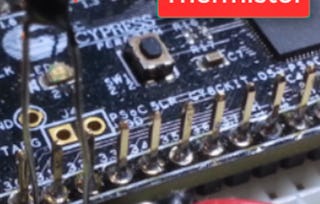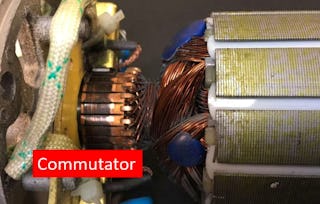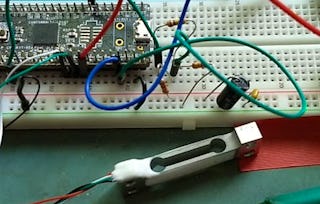"Sensor Manufacturing and Process Control" can also be taken for academic credit as ECEA 5343, part of CU Boulder’s Master of Science in Electrical Engineering degree.
This is our fourth course in our specialization on Embedding Sensor and Motors. To get the most out of this course, you should first take our first course entitled "Sensors and Sensor Circuits", our second course entitled "Motor and Motor Control Circuits", and our third course entitled "Pressure, Force, Motion, and Humidity Sensors". Our first course gives you a tutorial on how to use the hardware and software development kit we have chosen for the lab exercises. Our second and third courses give you three hands-on lab experiments using the kit. This third course assumes that you already know how to use the kit. You will learn about sensor signal characterization and manufacturing techniques and how to optimize the accuracy of sensors. You will also learn about more advanced sensors, proportional-integral-derivative (PID) control, and how this method is used to give you a closed loop sensor feedback system. After taking this course, you will be able to: ● Understand how sensor manufacturers characterize and calibrate their sensors. ● Tune a PID control loop and access the PID control function of the Cypress PSoC development kit for a motor control application. ● Understand manufacturing methods used to build electro-mechanical and micro-machined sensors. You will need to buy the following components to do the two course projects based on the videos in this module. Note that if you have already purchased the PSOC 5LP PROTOTYPING KIT, you do not need to buy it again. These parts may be purchased off the Digikey web site, www. Digikey.com. Or, you may obtain the specs from the site, and purchase them elsewhere. All are quantity one except for N107-ND where you need three, and 493-15371-ND where you need two. 428-3390-ND P14355-ND FQU13N10LTU-ND N107-ND 1N5393-E3/54GICT-ND RNF14FTD1K00CT-ND P0.62W-1BK-ND 493-15371-ND Additional equipment needed: • Wire - various gauges and lengths • Breadboard • Oscilloscope – suggested models are: o PICOSCOPE 2204A-D2 available on www.digikey.com or o Digilent 410-324 | OpenScope MZ available on www.newark.com Depending on your budget, you can also investigate these models: o Hantek HT6022BE20MHz - https://www.amazon.com/dp/B009H4AYII o SainSmart DSO212 - https://www.amazon.com/dp/B074QBQNB7 o PoScope Mega50 USB - https://www.robotshop.com/en/poscope-mega50-usb-mso-oscilloscope.html o ADALM2000 - https://www.digikey.com/en/products/detail/analog-devices-inc./ADALM2000/7019661















